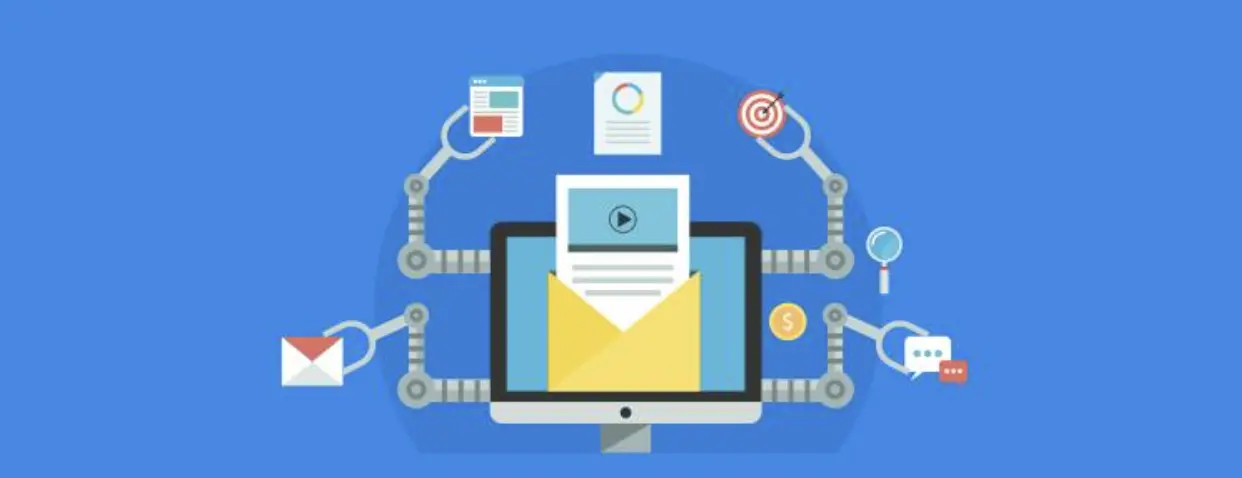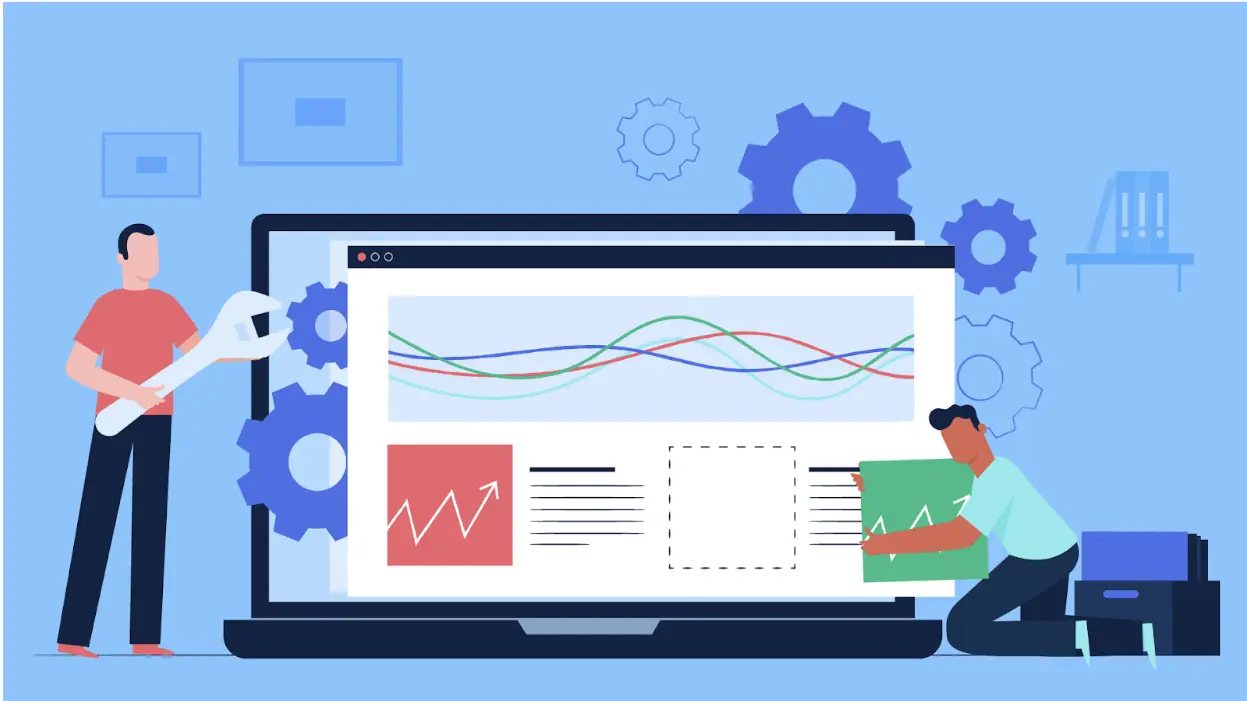In today’s fast-paced business landscape, B2B sales teams face increasing pressure to streamline processes, boost productivity, and achieve remarkable growth. The advent of B2B sales automation has presented businesses with a transformative solution that enables them to optimize their operations, nurture valuable relationships, and make data-driven decisions. In this comprehensive blog, we will delve into the world of B2B sales automation, exploring its immense potential & providing practical insights for successful implementation.
Read it as we unlock the power of automation & unveil the strategies that will empower your organization to surpass competitors & accelerate revenue generation.
The digital era has brought about significant changes in the B2B sales landscape. Customary deals strategies are presently not adequate to satisfy the needs of the present clients. B2B sales automation provides a solution to navigate this evolving landscape by streamlining processes and enhancing efficiency.
Businesses face various challenges in B2B sales, including lengthy sales cycles, manual data entry, lead management complexities, and limited visibility into performance metrics. These challenges can hinder growth and prevent businesses from reaching their full potential.

B2B sales automation revolutionizes the way sales teams operate, enabling them to streamline and optimize their entire sales process. By automating repetitive tasks such as data entry, lead nurturing, and follow-ups, sales representatives can devote more time to building meaningful connections with prospects and closing deals. This increased efficiency translates into accelerated sales cycles, reduced costs, and enhanced overall productivity.
Efficient lead management is vital for sustained success in B2B sales. B2B sales automation platforms offer sophisticated lead tracking and scoring mechanisms, enabling businesses to identify and prioritize high-quality leads. By automating lead nurturing through personalized communications and targeted content delivery, organizations can establish stronger relationships, increase conversions, and ultimately drive revenue growth.
Informed decision-making is the cornerstone of successful sales strategies. B2B sales automation equips businesses with comprehensive analytics and reporting tools, providing valuable insights into sales performance, customer behavior, and market trends. Equipped with this information, associations can settle on information-driven choices, refine their deals processes, and recognize open doors for enhancement and development.
Effective collaboration and communication are essential for B2B sales success. B2B sales automation platforms facilitate seamless collaboration among team members, enabling them to share important customer information, track progress, and align strategies. This streamlined communication improves efficiency, ensures consistency, and enhances the overall customer experience.
As businesses grow, their sales processes must scale accordingly. B2B sales automation platforms offer scalability and adaptability, allowing businesses to accommodate increased sales volumes, expand into new markets, and integrate with other business systems. This scalability ensures that automation efforts can support long-term growth and evolving business needs.

Before embarking on the journey of B2B sales automation, it is crucial to define clear and measurable goals. Distinguish key execution pointers (KPIs) that line up with your business goals, for example, expanded income, diminished deals cycles, or further developed consumer loyalty. This clarity will guide your automation efforts and help you track the effectiveness of your strategies.
Selecting the appropriate B2B sales automation platform is paramount to achieving success. Evaluate your necessities, investigate various choices, and pick an answer that lines up with your particular requirements. Look for features like CRM integration, email marketing capabilities, lead scoring, and analytics. A comprehensive platform will empower your sales team and provide a solid foundation for automation.
As you embrace B2B sales automation, critically evaluate your existing sales processes and workflows. Identify areas that can be streamlined and optimized, removing bottlenecks and improving efficiency. Map out the customer journey, from lead acquisition to conversion, and automate repetitive tasks at each stage to ensure a seamless and consistent experience for your prospects and customers.
While automation brings efficiency, it is crucial to maintain a human touch in your customer interactions. Influence the force of personalization by fitting your informing, content, and offers to meet the particular requirements and trouble spots of your ideal interest group. Engage in timely and relevant conversations to build trust and foster long-lasting relationships.

Implementing B2B sales automation can come with its own set of challenges. In any case, with appropriate preparation and systems set up, these difficulties can be defeated actually. Let’s explore some common implementation challenges and how to address them:
Introducing automation into an organization often requires a shift in mindset and workflows. Resistance to change can be a significant challenge. To address this, it is crucial to communicate the benefits of automation clearly to all stakeholders. Emphasize how automation will streamline processes, improve productivity, and ultimately drive growth. Give preparation and backing to assist representatives with adjusting to the new framework and address any worries they might have. A smooth transition can be achieved by fostering a culture that embraces change and continuous improvement.
Many businesses have a complex technology ecosystem with multiple systems in place. Integrating B2B sales automation seamlessly with existing systems, such as CRM platforms, marketing automation tools, and customer support systems, can be a challenge. It is essential to assess the compatibility of the automation platform with your current infrastructure and evaluate the availability of integration options. Work closely with your IT team or consultants to ensure smooth data flow between systems, avoiding data silos and inconsistencies.
Data is the lifeblood of B2B sales automation. However, managing and maintaining data quality can be a challenge. Implement robust data governance practices to ensure data accuracy, consistency, and security. Establish data standards, conduct regular data audits, and define roles and responsibilities for data management. Consider leveraging data cleansing and enrichment tools to enhance the quality of your data. By having solid and modern information, you can pursue informed choices, customize communications, and drive improved results.
As your business grows, your sales automation needs may evolve. Scalability and flexibility become crucial factors to consider during implementation. Choose an automation platform that can accommodate your future growth and changing requirements. Ensure that the platform supports customization, allows for the addition of new features or functionalities, and integrates easily with other systems. Regularly review your automation workflows to identify opportunities for optimization and scalability as your business expands.
One of the vital worries for organizations is estimating the profit from speculation (return for capital invested) of their B2B deals robotization drives. Establish clear metrics and KPIs to track the impact of automation on key business objectives, such as revenue growth, cost reduction, and improved conversion rates. Use analytics tools provided by the automation platform to gather data and generate reports that demonstrate the ROI of your automation efforts. Regularly analyze and communicate these results to stakeholders to showcase the value and effectiveness of automation.
B2B sales automation holds immense potential for driving growth and achieving exceptional results. By implementing the right strategies and overcoming implementation challenges, businesses can unlock the full benefits of automation. Here are some key insights to harness the power of B2B sales automation for growth:
B2B sales automation is not just about streamlining internal processes; it is about delivering a superior customer experience. Understand your customers’ needs, pain points, and preferences, and tailor your automation workflows accordingly. Implement personalized communications, targeted content, and automated nurturing sequences to engage prospects and build lasting relationships. By putting your clients at the focal point of your mechanization endeavors, you can drive consumer loyalty, faithfulness, and development.
Automation is not a set-it-and-forget-it solution. To maximize its effectiveness, continuously monitor and optimize your automation workflows. Regularly review data, analyze performance metrics, and identify areas for improvement. Test different approaches, messages, and timing to refine your automation sequences. By optimizing your workflows, you can enhance engagement, increase conversions, and drive revenue growth.
Sales and marketing alignment is essential for successful B2B sales automation. Foster collaboration between these two teams to ensure seamless integration of automation efforts. Align on goals, define lead qualification criteria, and establish clear communication channels. By working together, sales and marketing can create cohesive automation workflows that nurture leads effectively and drive revenue growth.
5.4 Stay Agile and Adapt to Market Changes
The business landscape is constantly evolving, and so should your B2B sales automation strategies. Stay agile and adaptable to market changes, emerging technologies, and evolving customer expectations. Regularly assess the effectiveness of your automation efforts and make necessary adjustments to stay ahead of the competition. Embrace innovation, experiment with new approaches, and continuously seek ways to improve and optimize your automation processes.
To get valuable free insights deliver straight to your inbox

B2B sales automation, when implemented with proper planning and best practices, can be a game-changer for businesses. By overcoming implementation challenges, harnessing the power of automation, and focusing on customer-centricity, optimization, collaboration, and adaptability, organizations can drive growth, increase efficiency, and achieve remarkable results in their sales efforts.
It is essential to recall that fruitful B2B deals with computerization are certainly not a one-time try. It requires ongoing evaluation, refinement, and adaptation. Continuously measure and analyze the impact of automation, solicit feedback from stakeholders, and stay proactive in optimizing your workflows. By doing so, you will situate your business for long-haul outcomes in the consistently advancing universe of B2B deals.
Ready to transform your B2B sales efforts and achieve unprecedented growth? Take action now and leverage the power of B2B sales automation to elevate your business to new heights. Embrace the future of sales by implementing cutting-edge automation strategies tailored to your unique needs. Don’t miss out on the opportunity to streamline your processes, improve efficiency, and drive remarkable results.
Contact our team of experts, at Salesamore today and discover how B2B sales automation can revolutionize your business. We’re here to provide personalized guidance, assess your specific requirements, and help you navigate the implementation process seamlessly!
In accordance with the current EU data protection laws, please take a minute to reviwe the term & conditions for using our services. Our terms describe how we use data and the options available to you.